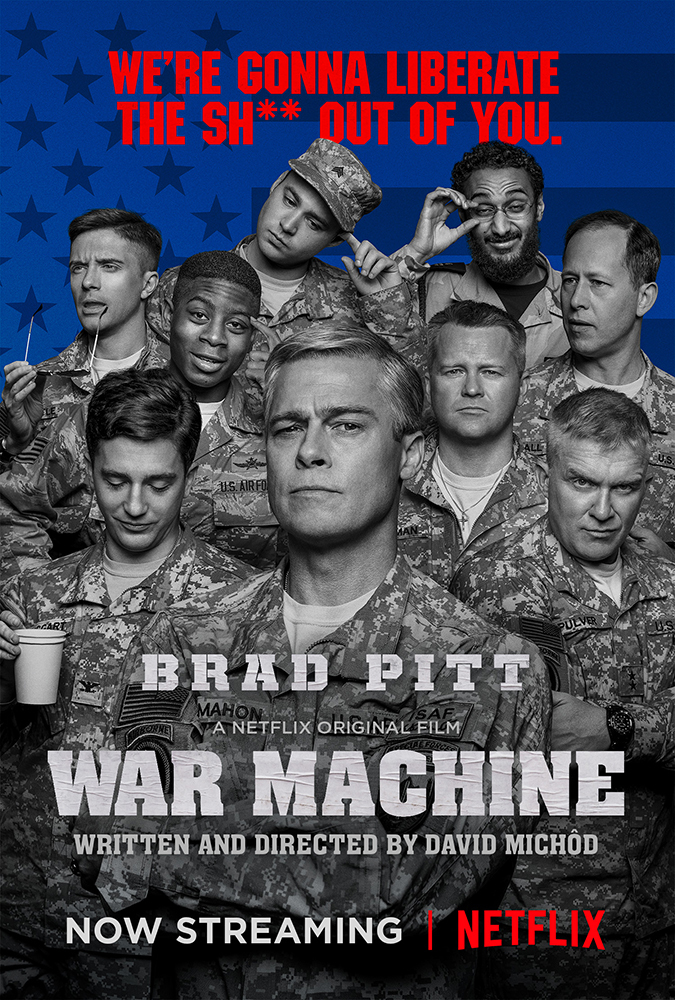In a theater of conflict far from home, a seasoned commander faces not just the enemy’s bullets but also the bureaucracy’s red tape. Tasked with turning the tide in a war deemed unwinnable, this general’s every move is met with skepticism from politicians and weariness from troops ready to pack up. His mission? To redefine victory in a battleground where doubt reigns supreme.
Leading the charge is General Glen McMahon (portrayed by Brad Pitt), a military stalwart with a pedigree from prestigious institutions, including West Point and Yale. McMahon, a troublemaker with a penchant for top grades, is no stranger to tough challenges. Before Afghanistan, he commanded covert operations in Iraq, even penning a book on leadership titled “One Leg at a Time.”
Upon arrival in Afghanistan, McMahon wastes no time shaking things up. He rallies commanders from 43 nations under his command, urging them to step out of isolation and collaborate. Among his inner circle are trusted aides like Colonel Cory Staggart, Major General Greg Pulver, USAF Tech Sgt. Andy Moon, and the enigmatic Lieutenant Commander Pete Duckman.
His encounters with diplomats like Ambassador Pat McKinnon and officials like Dick Waddle and Ray Canucci reveal a deep-seated disdain for civilian interference. To McMahon, these figures are mere hindrances to his mission.

A pivotal moment comes when McMahon tours Afghanistan, realizing that the conflict’s nature is not conventional warfare but an insidious insurgency. This insight clashes with the prevailing strategy of nation-building, a path littered with failed attempts from history.
Despite calls to abandon certain regions like Helmand, McMahon doubles down on his unconventional strategy, demanding more troops and igniting tension with higher-ups like the Secretary of State. His unyielding stance earns both admiration and ire, depending on whom you ask.
The magic of cinema is that you can take people somewhere they never thought they could go.
David Michôd
As McMahon pushes forward with a surge in troops, challenges mount. Media scrutiny, political maneuvering, and personal ambitions intersect, threatening to derail his mission. A scathing exposé by journalist Sean Cullen casts McMahon in a controversial light, further complicating matters.
Ultimately, McMahon’s tenure reaches a tumultuous end, marked by revelations, accusations, and a changing of the guard. His replacement, General Bob White, steps into a quagmire where victory is elusive, and the line between heroism and hubris is razor-thin.








